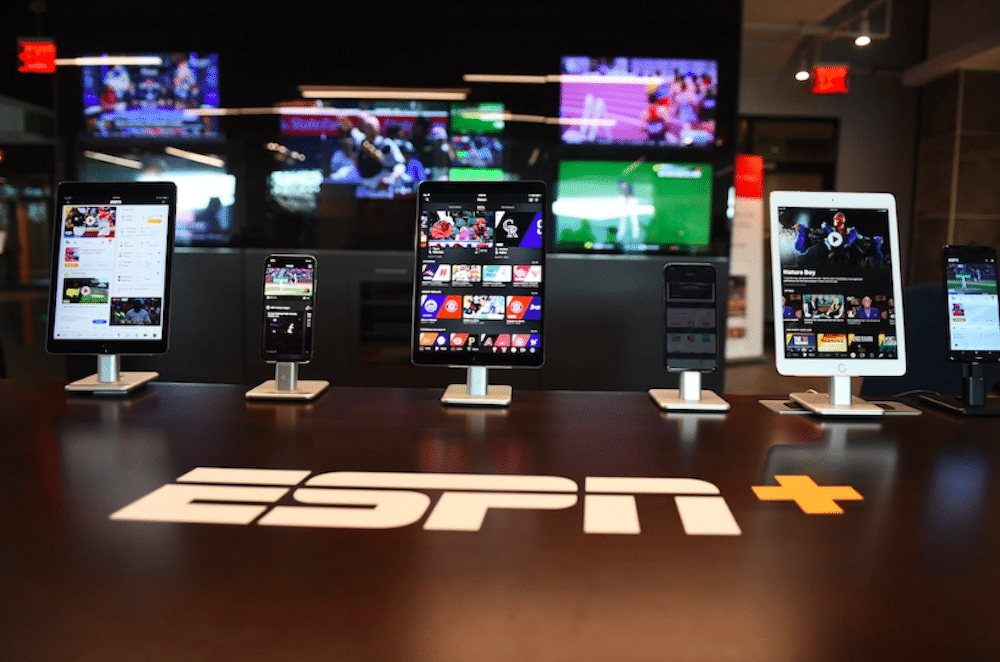To quote Forbes, “the company known for creating ‘The Happiest Place On Earth’ is looking to place a wager.” The announcement that Walt Disney plans to enter the sports betting industry made international headlines, particularly in Japan, where the country’s affection for Walt Disney is well known. The Tokyo Disney Resort has had over 550 million visitors since its inception in 1983, and Japan is currently in the process of developing the country’s first integrated casino resort. With this in mind, it’s easy to understand Japan’s enthusiasm for Walt Disney’s sports betting plans, but what exactly does this imply?
Disney’s Recent Performance
The announcement came during Disney’s 2021 fourth-quarter earnings report. While the entertainment giant’s performance was found to be slacking this past year, the sports business saw a remarkable rise. The ESPN+ streaming service, under the Walt Disney Company, saw a staggering 66% increase in the number of subscribers over the fiscal year.
Moreover, reports suggest that 90% of the programs watched on Disney-owned TV networks last year were sporting events. Probably in response to this trend, the company has also inked a 10-year deal with the National Professional Football (NFL) and will acquire broadcasting rights in 2023.
Why Betting?
According to CEO Bob Chapek, gambling can help Disney create new revenue streams and attract a younger audience. The sports betting industry is heavily consumer-driven, especially by the younger generation, and attracts a significant portion of sports fans who consider it part of the whole sports experience.
Consequently, ESPN is the perfect platform for Disney to enter the world of gambling. The advertising revenue on the sports channel was flat in 2021’s last quarter, and gambling can provide a new source of income. Even with the new number of subscribers, the growth trend since the last decade has been slowly declining as people continue to shift away from pay TV.
Moreover, Disney’s betting development is not new and had already taken root in 2020, when ESPN signed contracts with gambling giants DraftKings and Caesars Entertainment to link their sportsbooks on the ESPN website. The licensing deal is a meticulous move to ensure the mother brand’s image stays protected. It would allow ESPN to have a broader role in the market while DraftKings and Caesars continue handling the betting mechanics.
In addition to that, the Wall Street Journal reported a potential $3 billion brand licensing deal between Walt Disney and the two companies in August 2021! However, there’s a catch: how does the family-friendly company plan to get in on the wagering action?
Disney and Betting: Catch-22 or Perfect Combo?
Disney’s family-friendly traditional image can be seen as a hitch in its plans to enter the sports betting industry. Chapek gave a vague answer when asked if ESPN would move onto hosting wagers directly on the website.
Therefore, it is likely that Walt Disney will stick to licensing for the time being, even though it’s lagging behind competitors like FOX corporation, which offers an integrative betting service on their subsidiary, FOX Sports.
However, the stigma surrounding the sports betting industry is already being challenged due to the Supreme Court lifting the betting ban on sports. Since then, more than 30 U.S states, including Washington D.C., have created new avenues in the industry in the form of legal sportsbooks. Just last year, Americans bet around $24 million in the first fiscal half, according to the American Gaming Association.
While the American betting industry is expected to rake in $30 billion in revenue, it is still unclear if Disney will ever invest in a direct betting platform. Its integration into the sports betting industry will likely challenge its traditional image.
In the meantime, Disney’s primary revenue stream is presumed to be based on DraftKings’ advertising program. The betting giant has a big budget for advertising spending and focuses 80% of its ever-increasing revenue on it.
While Walt Disney struggles with its efforts without tainting its family-friendly image, many companies have already changed trajectories and entered the sports betting industry, such as Sports Illustrated.
It is also essential to consider that Disney’s licensing strategy might help keep fans interested and glued to their screens, potentially increasing ESPN’s core cable business. As the company continues to plot its course with CEO Chapek’s bold and positive outlook, it will be interesting to see how Walt Disney fares in coming years.
Featured Image Credit: TechCrunch


